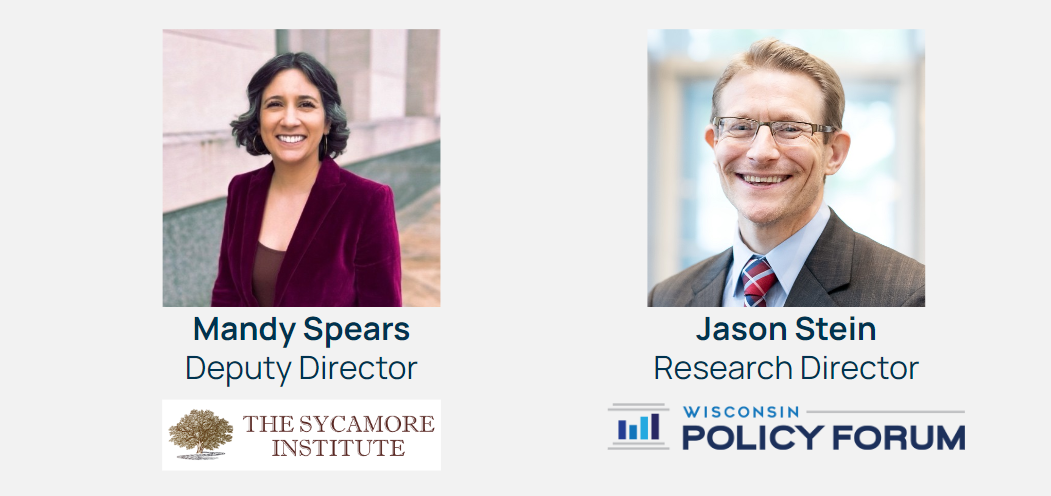Analyzing and Communicating About State Budgets – May 2024 Virtual Community Discussion
Our May Virtual Community Discussion spotlighted how two data-driven policy organizations analyze and communicate about their respective state budgets. To kick off the session, our speakers, Mandy Spears of The Sycamore Institute and Jason Stein of Wisconsin Policy Forum, shared the many ways their organizations engage in budget analysis. Though both the Sycamore Institute and Wisconsin Policy Forum create different types of reports and analysis, they share the approach of “zooming out” to provide context and implications of their state’s budget.
The Sycamore Institute achieves this through publishing deeper dives on bigger initiatives, mid-fiscal year trackers and budget recommendations, and a “primer” (a textbook on the budget) every gubernatorial election.
Wisconsin Policy Forum publishes reports that compliment the exhaustive analysis that similar organizations in their state produces, and focuses on interpreting the implications of their state’s budget on “big ticket” line items through visuals and simple language.
Key Takeaways:
- Creating fair, non-partisan budget analysis builds trust with policymakers and the public alike, and can get your organization invited into new conversations. Offering budget analysis that is both helpful to and at times critical of both sides of the aisle builds trust in your organization and a reputation for being truly non partisan. This helps maintain your organization’s influence regardless of who is in office. In other words, don’t be afraid to ruffle feathers on both sides of the aisle.
- Compelling storytelling and visuals are the most effective means of communicating with stakeholders. Providing just the numbers of the budget will not create the impact your organization is looking for – instead take your audience by the hand and explain what the budget means, and the implications that policy makers can learn from and use in their own efforts.
- Tailor your organization’s budget work around what is already available in your state. Creating work that is duplicative to what is already available will not help you make an impact. Instead, offer analysis that is unique. For example, if another organization in your state writes comprehensive budget analysis, try creating complementary work that translates the key facts into shorter and/or more accessible language.
- If you want to get involved with budget work, you can start small. Most of a state’s budget dollars are allocated toward just a few major budget categories. You can focus on just those few items to cover most of your state’s budget, and may spare you from engaging in policy areas your organization doesn’t otherwise wish to tackle.
Slides from the virtual community discussion may be viewed here. To view a recording of the presentation portion of the VCD, please use this link.

